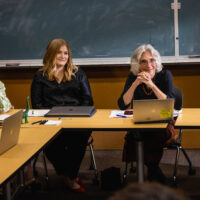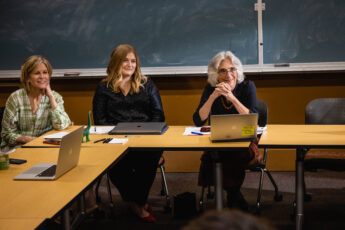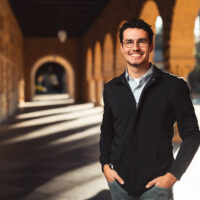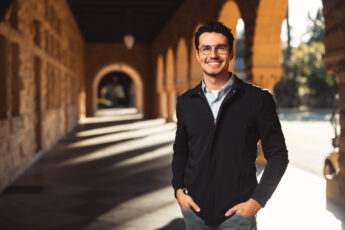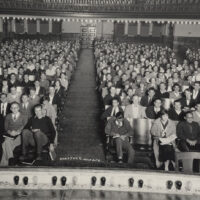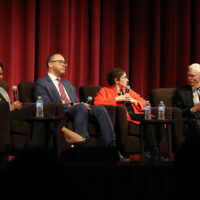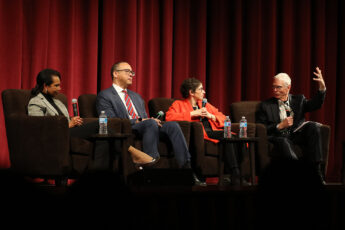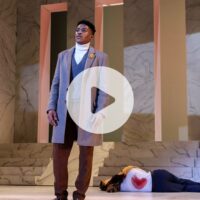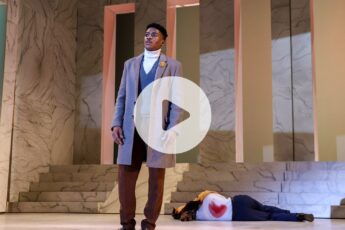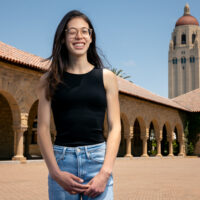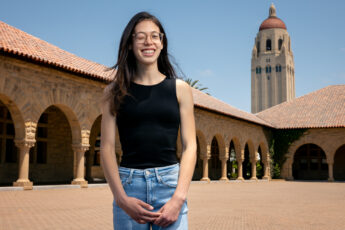How Stanford is reimagining the undergraduate experience
Stanford’s new first-year requirement, Civic, Liberal, and Global Education (COLLEGE), invites students to reflect on their own place and purpose at Stanford, in society, and in the world.
In fall of 2021, Stanford launched a new first-year requirement for undergraduate students that invites frosh to reflect on their own place and purpose at Stanford, in society, and in the world.
The program, called Civic, Liberal, and Global Education – commonly referred to as “COLLEGE” – is conceived as a three-course sequence, with students taking two quarter offerings.
In the fall quarter course, Why College? Your Education and the Good Life, students journey inward, reflecting on what they want to get out of their education but also what kind of person they want to be and what life they want to lead. In winter, students then consider their civic role and responsibilities in Citizenship in the 21st Century. Throughout the spring, students contemplate their relationship to the world and the planet in a Global Perspectives offering.
“What we’re trying to do with the COLLEGE program is recalibrate and reframe for our students what college was designed to do and how it connects to their education, work, but also lives,” said Dan Edelstein, one of the faculty directors for COLLEGE and the William H. Bonsall Professor of French in the School of Humanities and Sciences (H&S).
Stanford Report has been following the COLLEGE program to find out more about what students experienced in their seminars and other COLLEGE offerings, like the winter quarter collaboration with the Department of Theater & Performance Studies (TAPS) that saw a new interpretation of William Shakespeare’s Julius Caesar being staged.
Here are some of these stories in Stanford Report’s COLLEGE series.
COLLEGE replaces the Thinking Matters requirement. The program grew out of the Long-Range Vision and is in a pilot phase through the 2025-26 academic year.
